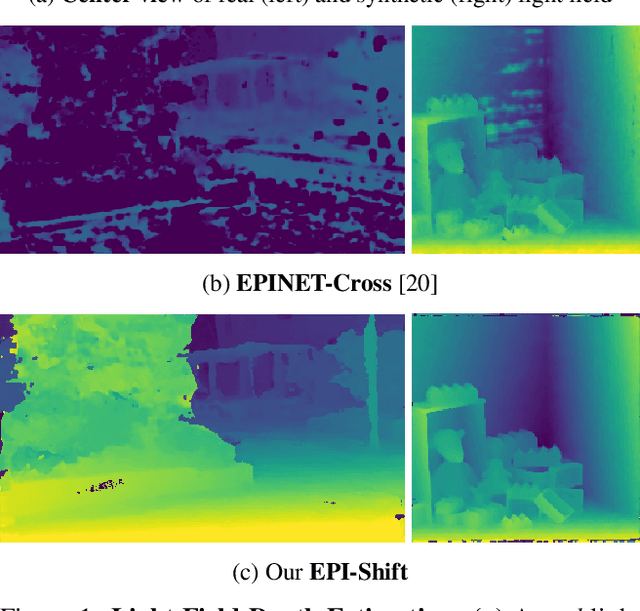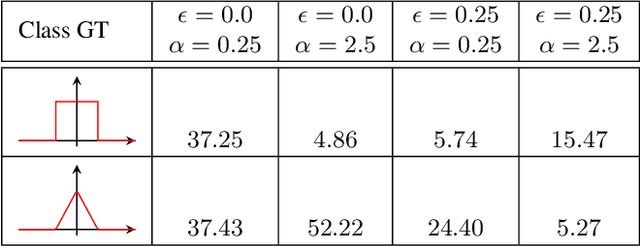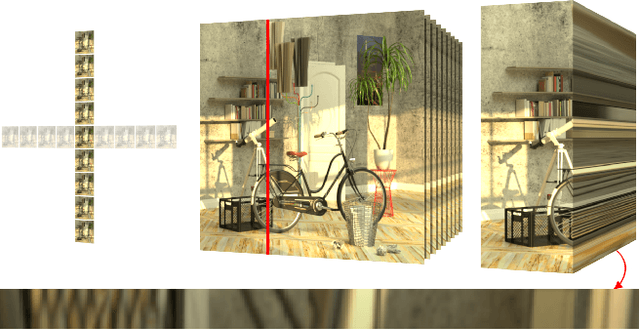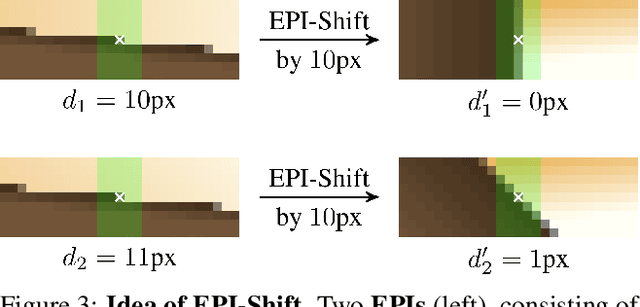Learning to Think Outside the Box: Wide-Baseline Light Field Depth Estimation with EPI-Shift
Paper and Code
Sep 19, 2019



We propose a method for depth estimation from light field data, based on a fully convolutional neural network architecture. Our goal is to design a pipeline which achieves highly accurate results for small- and wide-baseline light fields. Since light field training data is scarce, all learning-based approaches use a small receptive field and operate on small disparity ranges. In order to work with wide-baseline light fields, we introduce the idea of EPI-Shift: To virtually shift the light field stack which enables to retain a small receptive field, independent of the disparity range. In this way, our approach "learns to think outside the box of the receptive field". Our network performs joint classification of integer disparities and regression of disparity-offsets. A U-Net component provides excellent long-range smoothing. EPI-Shift considerably outperforms the state-of-the-art learning-based approaches and is on par with hand-crafted methods. We demonstrate this on a publicly available, synthetic, small-baseline benchmark and on large-baseline real-world recordings.
 Add to Chrome
Add to Chrome Add to Firefox
Add to Firefox Add to Edge
Add to Edge